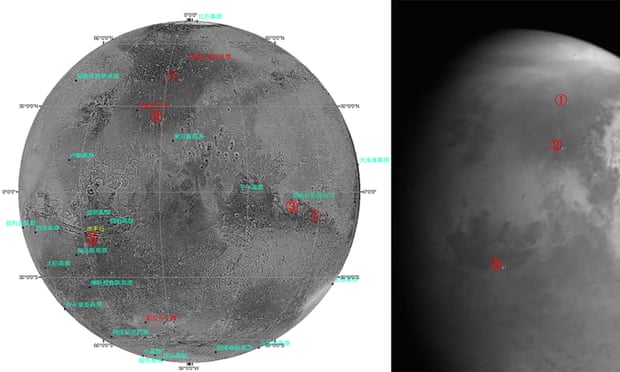President Xi Jinping has hailed China as world leader on interplanetary exploration after an unmanned;Chinese spacecraft successfully landed on the surface of Mars earlier today, 15th May.
This feat, made China the second space-faring nation after the US to land on the red planet. It also makes China the first country to carry out an orbiting, landing and roving operation;during its first mission to Mars.
Addressing the milestone, President Xi noted that this success marks a major step forward in the country’s interplanetary exploration;by achieving a leap from Earth-moon system to the interplanetary one.
He also acknowledged that the landing means Chinese people have left their footprint on Mars for the first time.
President Xi then offered warm congratulations and sincere greetings to the personnel involved in the achievement.
He noted that the country will always remember the contributions and achievements of the participants of the mission, stressing that it is;their courage to challenge and pursue excellence that has brought;the country to a leading position in the world in terms of interplanetary exploration.
According to officials, the Chinese rover is on a quest to collect and analyze rock samples from Mars’ surface. It is;expected to spend around three months there.
The Tainwen-1 probe
According to the China National Space Administration (CNSA), the mission called;the Tianwen-1 probe, consisting of an orbiter, a lander and a rover, was;launched from the southern province of Hainan in July 2020.
The spacecraft entered Mars’ orbit in February 2021 and sent;back its first picture of the planet in the same month. The photo released by the CNSA showed geological features including the Schiaparelli crater and the Valles Marineris, a vast stretch of canyons on the Martian surface.

The lander carrying the rover, Zhurong, is named after a Chinese mythical fire god. Officials say it completed the treacherous descent through the Martian atmosphere using a parachute to navigate the “seven minutes of terror”, aiming for a vast northern lava plain known as the Utopia Planitia.
Experts say the complicated landing process has been called the “seven minutes of terror” because it happens faster than radio signals can reach Earth from Mars, meaning communications are limited.
Several US, Russian and European attempts to land rovers on Mars have failed in the past, most recently in 2016 with the crash-landing of the Schiaparelli joint Russian-European spacecraft.

The latest successful arrival came in February, when US space agency Nasa landed its rover Perseverance, which has since been exploring the planet. The US rover also launched a small robotic helicopter on Mars which was the first ever powered flight on another planet.
Analysts have hailed the Chinese achievement noting that the country has come a long way in its race to catch up with the US and Russia, whose astronauts and cosmonauts have decades of experience in space exploration.
China also successfully launched the first module of its new space station last month. CNSA officials hope to have it crewed by 2022 and eventually send civilians to the moon.
Read Also: Gov’t spends GH¢ 221.4m on Climate Action in 2020























